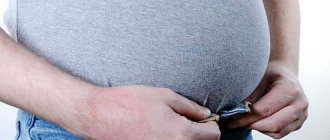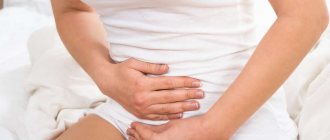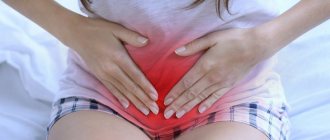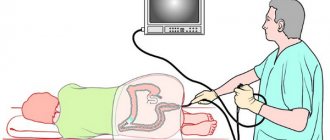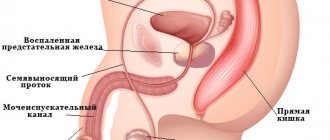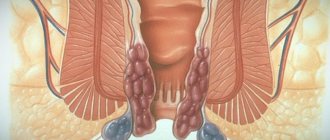The intestines of a healthy person are emptied regularly every one or two days. The problem of stool retention cannot be ignored. Constipation can cause severe abdominal pain. This is explained by the fact that feces remain in the intestines for a long time, which causes changes in its functioning.
Errors in nutrition, insufficient consumption of fiber and natural water can provoke the development of stool disorders. If bowel movements occur less than once a week, constipation is considered severe.
Depending on the causes of the pathological process, the patient is prescribed medication and dietary nutrition. Traditional medicine recipes will also help to cope with the disorder. So, why does your stomach hurt and constipation?
Causes and main symptoms of constipation
Constipation or constipation is a phenomenon familiar to everyone without exception. Most often, constipation is a consequence of:
- improper nutrition - if the body receives an insufficient amount of coarse dietary fiber, which stimulates the motor function of the large intestine;
- insufficient fluid intake - if a person drinks little, stool thickens and moves harder through the intestines, stretching its walls and causing microtraumas;
- taking medications - there are some medications that cause constipation (you can read about this in the instructions for use);
- a sedentary lifestyle as a result of which the functioning of the intestinal muscles is disrupted;
- diverticulum, volvulus, adhesions, tumors and other pathologies in the intestine that can cause obstacles along the path of feces;
- some pathologies of the endocrine system can cause a slowdown in metabolic processes in the body.
Spastic constipation can be a consequence of prolonged nervous overstrain. In women, constipation can be observed during pregnancy, and 40% of women of childbearing age experience constipation with pain every month 4-5 days before menstruation.
In addition, constipation causes gastrointestinal diseases:
- exacerbation of chronic gastritis;
- chronic pancreatitis;
- cholecystitis;
- dyskinesia;
- diverticulosis;
- stomach ulcers;
- intestinal obstruction.
Constipation is considered a condition when:
- bowel movement does not occur within two days;
- feces come out hard and dry, sometimes in balls;
- after defecation there is a feeling of incomplete bowel movement.
Why does your stomach hurt when you are constipated?
A healthy person has a bowel movement every one to two days. If defecation does not occur during this period, the feces become denser, expand and begin to put pressure on the walls, which leads to irritation of the nerve endings. A person feels pain in the lower abdomen. However, in some cases, a person feels pain not only in the locations of the intestines. Why is this happening:
- There is a displacement of internal organs. The intestines filled with hard feces put pressure on nearby organs, which causes pain in the middle and sides of the abdomen or even in the hypochondrium.
- If constipation continues for several days, the body becomes intoxicated. Increased levels of toxins affect the kidneys, liver and lungs, so the lower back and even the head may hurt.
- Increased levels of toxins have a detrimental effect on the immune system. This causes acute respiratory viral infections, hormonal imbalances and cardiovascular diseases. These diseases are characterized by different symptoms, including pain in different places.
- When you have a bowel movement after many days of constipation, numerous ruptures of the mucous membrane may occur and cracks may appear around the anus. Hemorrhoids may worsen. Severe pain that occurs during bowel movements can last for several hours or even days.
Nature of pain with constipation
If constipation and pain in the lower abdomen are observed, then the cause of the pathology is nutritional. The pain will be dull, stabbing, accompanied by rumbling and colic and will go away immediately after defecation.
Abdominal pain due to constipation caused by gastrointestinal pathologies does not go away after bowel movement. Their intensity may decrease slightly, but in most cases this does not happen. Depending on the disease, pain can appear anywhere:
- in chronic pancreatitis - in the hypochondrium on the right and left; in acute pancreatitis, the pain can be girdling and intense;
- with gastritis, the epigastrium may hurt, and the pain may be accompanied by heartburn and nausea;
- with intestinal obstruction, either side may hurt, and the pain may be accompanied by fever.
Pain in the left hypochondrium
Constipation and pain in the left side can be a sign of many problems, but the main one is severe fecal stagnation with hardening of the feces. Pain in the left hypochondrium in the absence of stool can be due to the following reasons:
- intestinal obstruction;
- hardening of fecal deposits;
- organic lesions of the abdominal cavity;
- stomach ulcer;
- left-sided pancreatitis.
In addition, pain in the left hypochondrium may indicate the presence of diverticulosis. This disease often develops against a background of constant constipation and affects the colon. Also, pain on the left side of the abdomen or under the ribs may indicate problems with parasites. In this case, helminthiasis is accompanied by stool disturbances, decreased immunity and allergic manifestations.
How to relieve pain and eliminate the cause
First of all, it is necessary to determine the cause of constipation. To do this, you need to contact a gastroenterologist and undergo a study. The most commonly prescribed are FGS to determine the presence of gastritis or ulcers, testing for Helicobacter pylari, and colonoscopy or irrigoscopy to examine the intestines. Depending on this, drug treatment of the underlying disease is prescribed.
If constipation is caused by poor diet or a sedentary lifestyle, you just need to change your lifestyle and diet:
- walk more or sign up for a fitness class. Daily cycling helps in solving intestinal problems;
- you need to adjust your diet: give up fast food and snacks on the go, limit yourself to eating flour, eat more vegetables and cereals, switch to fractional meals, drink more - at least two liters per day.
Drugs to relieve constipation differ in their spectrum of action:
- Laxatives are the most effective and fast-acting drugs that work directly in the intestines. They soften accumulated feces, activate peristalsis, and increase osmotic pressure in the intestine. The most effective and gentle laxatives are Motilium, Duspatalin, Trimedat.
- Probiotics contain lactic acid bacteria and are used for conditions where constipation is caused by the suppression of beneficial microflora in the intestines by pathogenic microorganisms. This is observed with flatulence, dysbiosis and intestinal infections. The natural production of bacteria may be disrupted after long-term antibiotic therapy. Such drugs include Acipol, Linex, Bifiform. They suppress pathogenic flora well and restore water and electrolyte balance, due to which stool softens and moves more easily through the colon.
- Enzymes and choleretic drugs can be used if the cause of constipation is pancreatic dysfunction or insufficient bile production. In the first case, Mezim will help, in the second - any choleretic tablets.
The following tools may also be mentioned:
- Dulcolax suppositories begin to act after 6-12 hours;
- Slabicap, Guttalax, Guttasil drops will begin to act in 10-12 hours;
- lactulose preparations Goodluck, Romphalak, Normaze will begin to act only after 1-2 days.
If you have undergone an examination and it did not reveal any significant pathologies, you can fight constipation with folk remedies:
- a glass of kefir before bed;
- in the morning a glass of water on an empty stomach and then a teaspoon of olive oil;
- a glass of carrot juice before breakfast;
- infusion of buckthorn or rhubarb root. Pour 20 g of any herb into a glass of water and boil for 20 minutes. Drink half a glass at night.
LiveInternetLiveInternet
–Categories
- prevention and treatment of hypertension (0)
- treatment of hypertension in weeks (0)
- blood pressure pills price (0)
- how to reduce blood pressure at home (0)
- treatment of hypertension degree (0)
- treatment of hypertension with iodine (0)
- how to increase blood pressure at home (0)
- Neumyvakin methods of treating hypertension (0)
- high blood pressure (0)
- high blood pressure tablets (0)
- pressure treatment causes (0)
- hypertension treatment with folk remedies (0)
- hypertension treatment video (0)
- arterial hypertension treatment (0)
- how to quickly reduce blood pressure at home (0)
- how to reduce blood pressure (0)
- recommendations for the treatment of hypertension (0)
- equator blood pressure pills (0)
- method of treating hypertension (0)
- how to reduce blood pressure at home (0)
- secrets of treating hypertension from Dr. Shishonin (0)
- high blood pressure tablets (0)
- shishonin secrets of treating hypertension (0)
- what is high blood pressure (0)
- hypertension treatment methods (0)
- how to reduce blood pressure without (0)
- methods of treating hypertension (0)
- treatment of renal hypertension (0)
- high blood pressure how to reduce (0)
- increases or decreases blood pressure (0)
- hypertension treatments (0)
- high blood pressure (0)
- reduce blood pressure pills (0)
- blood pressure medications (0)
- treatment of hypertension with medications (0)
- Neumyvakin treatment of hypertension (0)
- blood pressure pills (0)
- high blood pressure pills list (0)
- treatment of hypertension in the elderly (0)
- treatment of hypertension reviews (0)
- treatment of hypertension without drugs (0)
- intracranial pressure symptoms and treatment (0)
- high blood pressure treatment (0)
- blood pressure symptoms and treatment (0)
- hypertension home treatment (0)
- blood pressure pills (0)
- blood pressure pills list (0)
- how to quickly reduce blood pressure (0)
- does it reduce blood pressure (0)
- equator blood pressure pills price (0)
- high blood pressure treatment (0)
- tea increases blood pressure (0)
- tea increases blood pressure (0)
- does blood pressure increase (0)
- lowering pills lowers blood pressure (0)
- Indian treatment for hypertension (0)
What are the dangers of prolonged constipation with pain?
So, we found out whether the lower abdomen can hurt with constipation and what diseases can be accompanied by constipation with pain. It remains to find out why prolonged constipation accompanied by pain is dangerous:
- With prolonged stretching of the intestinal walls, the inflammatory disease diverticulosis develops. Protrusions form on the walls of the intestine - diverticula, which in turn can cause abdominal pain, intestinal obstruction and even peritonitis;
- Fecal intoxication may develop, the symptoms of which are poor health, decreased performance and decreased ability to work. In some cases, fecal intoxication can lead to death;
- an increased level of toxins in the body can lead to the development of liver pathology and destruction of its cells;
- straining during constipation will certainly lead to the development of hemorrhoids;
- solid feces, moving through the intestines, injure it, which causes the formation of microcracks and the subsequent development of inflammatory bowel diseases.
What to do if you can't cope with the pain
If your stomach hurts due to constipation and this condition is unbearable, you can use the following proven remedies:
- drink 30 grams of castor oil:
- give an enema;
- give a Microlax enema, which will take effect in 10-15 minutes;
- drink a mild, fast-acting laxative, such as senna.
You can share the article with your friends on a social network:
When a person has problems with the intestines, constipation will very soon become the first symptom. Sometimes fever occurs with constipation; this is not a common phenomenon, but still common. First of all, you need to find out why the temperature increased, and then start treating the problem itself, and not the symptom.
Causes
Many diseases of the gastrointestinal tract, as well as their side effects, can cause fever due to constipation.
An increase in body temperature in an adult during constipation can be caused by:
- Intestinal obstruction . Feces stop moving through the intestines, causing severe abdominal pain, nausea and even vomiting, as well as an increase in temperature to 38˚C.
- Appendicitis . If, during inflammation of the appendix, the temperature rises above 37 ° C, then such a symptom may indicate possible peritonitis; there will also be pain in the right side of the abdomen.
- Intoxication of the body with accumulated feces and their decay products. The temperature in this case can usually rise to 37 ˚С 37.5 ˚С. Other symptoms of toxin poisoning will also be observed: weakness, bloating, headache, refusal to eat and weight loss.
- Paraproctitis . Inflammation of the tissues in the rectal area leads to a serious illness with a rise in temperature to 37.5 ° C to 38 ° C.
- Exacerbation of hemorrhoids . Feces pass through the intestines and, touching the nodes, cause pain and inflammation, which will cause fever.
- Diverticulitis . The formation of an extra part of the intestine leads to the accumulation of feces, toxins, gases and other waste, which begin to cause a local inflammatory process, leading to constipation, and sometimes fever and chills.
- Intestinal tuberculosis . Damage to the intestines by such a disease can cause constipation, the feces are hard and mixed with blood, and the temperature rises up to 39 ° C.
- Dysbacteriosis . Here, the high temperature is caused not by the microflora disorder itself, but by what caused it. When treating constipation, people often use strong laxatives, which will expel the stool and the beneficial bacteria along with it. The body suffers from such a malfunction and can react to it with heat.
Stomach upset, indigestion, and other problems with the process of digesting food can also lead to short-term constipation and a rise in temperature to a low-grade level.
- Hormonal imbalances in the body . Here the intestines will become a victim, and the temperature will be a side symptom not of constipation itself, but of the primary disease.
- Parasitization of worms in the intestines . Their tangles lead to persistent constipation with rapid weight loss with good nutrition. The body reacts to worms as an allergen and tries to remove it, which is sometimes accompanied by a not very high temperature.
- Intestinal diseases . IBS, ulcers, colitis and other diseases can contribute not only to constipation, but also cause an increase in a person’s body temperature.
One of the main causes of constipation and diarrhea is the use of various medications.
.
To improve bowel function after taking medications, you need to drink a simple remedy
.
Symptoms
Constipation and fever are not the only symptoms that occur during intestinal diseases.
All of the above causes have secondary symptoms that can help the doctor make a diagnosis.
These include:
- a person has a stomach ache;
- bloating and flatulence are noted;
- There is weight loss, both due to loss of appetite and when the patient eats normally;
- nausea, possibly vomiting;
- decrease in hemoglobin, up to the appearance of anemia;
- constipation itself, stool retention for more than three days, or a decrease in the amount of feces down to a minuscule amount;
- pain during bowel movements;
- the presence of impurities in feces;
- weakness and malaise;
- problems with skin and hair appear.
Lower abdominal pain
The most common cause of stool retention is poor nutrition. A diet consisting of harmful foods, as well as irregular food intake, will certainly provoke constipation and entail consequences associated with it.
Also, a common cause of stool retention, accompanied by pain, is a sedentary lifestyle and the presence of addictions. Constipation often develops as a result of taking certain medications and improper therapy with laxatives.
Stomach pain and constipation last for several days, not only due to the above reasons. Diseases associated with the gastrointestinal tract also lead to problems with bowel movements, namely:
- disruption of the pancreas;
- gastritis;
- intestinal obstruction;
- diverticulosis;
- neoplasms in the intestines;
- stomach ulcer, etc.
In addition, constipation may have a postoperative etiology of development. Thus, problems with defecation often arise, for example, after a caesarean section and other surgical interventions in which anesthesia was used.
Painful constipation often affects pregnant women and mothers during the postpartum period. This is explained by intestinal dysfunction due to hormonal changes in the body. Newborns and children under three years of age also often encounter this problem, since at this age the intestines are still quite weak.
We advise you about
Fever in children with constipation
Constipation and high fever are most often observed in children under 3 years of age. This is due to changes in diet, introduction of complementary foods, and transfer of the baby to a new formula.
A baby's intestines are not adapted to digesting any food, especially artificial mixtures. Therefore, at first, constipation may occur; most often it goes away without complications, but sometimes it can cause fever, refusal to eat, tearfulness and abdominal pain.
If such symptoms are present, the mother should show the baby to the pediatrician. The doctor may advise changing the formula for feeding or, if the mother is breastfeeding, prescribing an appropriate diet for her. When the child turns 2 years old, constipation and fever quickly subside, since by this time the body has time to fully adapt to the new food, and the immune system is also strengthened.
Constipation in pregnant women
When the pregnancy is already three months or even more, the fetus becomes large and begins to put pressure on the intestines, blocking the passage of feces.
Women in this position often suffer from constipation, but an increase in temperature above 37 should alert them and become a reason to see a doctor.
One of the main causes of constipation or diarrhea is poor diet.
.
Therefore, to improve bowel function, you need to drink a simple drink
.
Preventive measures
To avoid constipation, it is advisable to follow the following recommendations:
- In the morning, do gymnastics with bending and lateral turns of the torso; bending and straightening your legs while lying on your back is also useful.
- During the day, take short breaks from work, especially if it is sedentary activity at the computer. Several exercises will help maintain muscle tone.
- After a working day, walk at least a couple of stops. If you are retired and not working, then choose a daily route and stick to your walking schedule.
- Water treatments have a good effect on intestinal function. You can sign up for the pool next door, or you can just take a contrast shower before bed.
- Try to go to the restroom at the same time every day, drink more fluids, and if you have constipation, regulate your bowel movements with fermented milk products, pureed vegetables, fruit juices, and compotes.
Temperature after constipation has passed
When constipation is eliminated, but the temperature remains or even begins to increase even more, this is a clear sign of pathology of the digestive organs. Gastritis, pancreatitis, cholecystitis, colitis, enterocolitis, and peptic ulcers may subside temporarily, helping to normalize stool, but the temperature will still persistently remind the person that the problem is not solved and there is no need to rejoice at the imaginary relief.
In this case, you need to visit a doctor and find the cause of this phenomenon. After defecation, which finally happened for the first time in a long time, the temperature may temporarily rise due to the accumulation of toxins and poisoning of the body with them, after a while this will pass.
Diagnosis and treatment
You can find out what can cause fever during constipation by consulting a doctor for advice. He will prescribe an examination and tests.
This can be recothoromanoscopy, endoscopic examination, anoscopy, digital examination and deep palpation of the abdomen.
The treatment is complex and consists of several important parts.
| Name of therapy | Treatment principle |
| Diet | Eliminate vegetable oils, fatty and heavy foods, flour products from the diet and introduce fiber-rich foods, as well as fermented milk products, into the diet. This will relieve constipation and restore bowel function. |
| Gymnastics | Exercise, running, and abdominal pumping will strengthen and normalize peristalsis, helping feces move forward. |
| Laxatives | If diet and exercise do not help, you can use laxatives as prescribed by your doctor. It is best if these are medicines made from natural ingredients. You can use Duphalac, Regulax, Microlax, Guttalax, Slabilen, Forlax and much more. |
| Enema | Enemas can not only help with constipation, but also relieve inflammation; chamomile tincture has this property. |
| Surgical intervention | If the problem is organic, then surgery may be necessary to remove polyps, ulcers, tumors and other objects that interfere with the passage of stool. |
Any treatment should be started after consultation with a doctor. Taking antipyretics for constipation will not help get rid of fever, as the problem will continue to exist. Therefore, you need to deal not with symptomatic treatment, but to eradicate the essence of the problem, then the temperature will go away along with it.
Lack of fluid in the diet is one of the main causes of constipation. To get rid of it in 3 days, you need to drink a simple remedy every day.
Video:
Every person faces the problem of bowel movement at least once in their life. However, if the disorder occurs regularly and pain due to constipation is observed, then specialist consultation and treatment are necessary.
Prevention
Preventive measures include playing sports, eating large amounts of fruits and vegetables rich in fiber, avoiding eating rice, giving up fatty meats, pasta, and flour products.
The main rule for preventing constipation is a balanced diet. It should contain foods with a lot of fiber. These include fruits and vegetables. Fiber improves digestive processes and promotes the movement of food through the intestines. You need to consume 20-35 g of the substance per day. Another product containing healthy fiber is bread.
It is necessary to take into account that each person selects fruits and vegetables for their diet individually. This is due to the characteristics of the body and the different effects of food on the functioning of internal organs.
The diet should include dishes that include legumes and whole grains.
Fatty, sweet, smoked foods containing a large amount of fiber can only be eaten in small quantities. Such food complicates the process of defecation and worsens the person’s condition.
The following products have a beneficial effect on the functioning of the digestive tract:
- whole grain pasta;
- brown rice;
- oatmeal;
- flax seeds;
- wholemeal bread;
- peanuts and walnuts.
To prevent constipation, you need to drink more fluids. An adult should drink 1.5-2 liters of clean water per day. Drinking water on an empty stomach in the morning helps to avoid complications with bowel movements. Serving - at least 1 glass. You can add a little honey and lemon juice to the liquid.
After meals, it is recommended to drink 1 glass of milk with the addition of psyllium seed oil.
It is allowed to use folk remedies for constipation: infusion of prunes, consumption of vegetable oil, etc.
During pregnancy, you can drink a mixture of orange juice and olive oil in a 1:1 ratio. Another laxative is natural juice from tomato, cabbage and carrots. All components are mixed in a ratio of 4:2:1. You need to drink the drink daily.
Physical exercise improves bowel function. It is necessary to walk more, ride a bike, swim, etc. Sports activities performed daily for 30 minutes significantly reduce the risk of constipation.
It is highly undesirable to postpone going to the toilet when you have the urge to defecate. This can not only cause fecal stagnation, but also negatively affects the functioning of internal organs.
If you do not change your lifestyle, pain and problems with bowel movements will occur constantly.
Be healthy!
Symptoms of constipation
You can understand the development of constipation by a number of signs. These include:
- defecation at intervals of more than 48 hours;
- difficult and painful process of defecation;
- dense and dry feces;
- feeling of incomplete bowel movement;
- the need for increased tension during the act of defecation.
If these symptoms are observed, this indicates problems with stool.
Constipation and lower abdominal pain often occur. This is due to the increased effort that occurs during the act of defecation. Some people lose their appetite, experience belching, an unpleasant taste in the mouth, insomnia, and nervousness. The skin may become unhealthy yellow. Other patients experience decreased ability to work and headaches due to constipation.
Children experience similar symptoms. The only difference is the frequency of defecation. If it is carried out less than 36 hours, then we can talk about the presence of problems with the child’s stool.
The disorder is often observed in pregnant women. Symptoms are similar to the above signs. In addition, rumbling in the stomach often occurs with constipation.
Causes of constipation
Problems with bowel movements can occur for various reasons. Most often, the disorder develops due to poor diet, sedentary lifestyle, pregnancy and taking certain medications. Often with constipation, the stomach hurts both during the urge to defecate and directly during the process of defecation.
In some cases, a person is diagnosed with diseases of the digestive tract. Many people are interested in what to do if they have stomach pain and constipation. It is necessary to identify and cure diseases, and the person’s condition will improve.
Causes of constipation in adults
There are the following types of factors, the consequence of which is constipation:
- Nutritional. A lack of fiber and fluid leads to stool problems and pain. Most often, it is enough to eat right, drink more clean water, and follow a diet.
- Hypokinetic. Abnormal bowel movements occur due to a sedentary lifestyle. Often, failure to defecate occurs in bedridden patients.
- Reflex. In this case, constipation develops, which occurs due to problems with the digestive system. Gastrointestinal pathologies - gastritis, ulcers, pancreatitis - are the cause of such a phenomenon as severe pain after constipation.
- Toxic. Exposure to various chemicals and some medications can lead to intoxication of the body and further development of constipation or, conversely, diarrhea.
- Endocrine. Deviations in the functioning of the thyroid gland lead to hormonal imbalance. The pathology negatively affects intestinal function and contributes to constipation.
- Mechanical. In this case, problems with bowel movements arise as a result of the presence of an obstruction in the large intestine. These can be tumors, helminths, scars. People suffering from these diseases constantly experience bowel problems. It is very dangerous.
- Neurological. Diseases such as sclerosis, stroke, and spinal injuries lead to the development of problems with bowel movements.
Women experience problems with bowel movements and pain during pregnancy. This is due to increased loads and pressure on the pelvic organs.
Hemorrhoids are a common pathology of the rectum. With this disease, problems with bowel movements often occur. A similar effect is observed with cracks and paraproctitis.
Diseases of the small and large intestines
The small intestine plays an important role in digesting food. It undergoes final processes, as a result of which food is broken down into relatively simple substances. When the small intestine malfunctions, the body does not fully receive the substances it needs. The main principle of operation and task of the colon is to push food, through spasms, further into the rectum. These spasms are not felt because they are a reflex movement of the body.
Dyskinesia is a disease that impairs intestinal motor function. As a result, the functioning of the gastrointestinal tract is disrupted. In this case, infections, ulcers, and unnatural formations in the intestine do not occur. Diverticula is a sac-shaped formation on the intestinal walls measuring 1-2 centimeters. When pressure increases in the esophagus, in weak areas the mucous membrane is pushed into the gaps between the muscle fibers.
Nonspecific ulcerative colitis is a disease of the inflamed intestine, but (unlike chronic colitis) in an acute form (with the formation of ulcers). The causes are not fully known. Colon cancer can occur at any age and does not depend on gender.
Enteritis inflammation of the mucous membrane of the small intestine
Enteritis is inflammation of the mucous membrane of the small intestine. It occurs in acute or chronic form. The reasons for the appearance are: poisoning, infections, irritation from spicy food or alcohol. Whipple's disease is a systemic (affects different body systems) infectious disease. The disease usually manifests itself with symptoms not associated with intestinal diseases.
Small intestine cancer - this disease is extremely rare, occurring in only 1-2% of cases of tumor formation in the gastrointestinal tract. Small intestine cancer affects older people, over 60 years of age. The disease occurs more often in men.
Proper selection of therapy will not only reduce the inflammatory effect, but also prevent complications. Treatment can be done with medication or surgery and diet. Anti-inflammatory, antibacterial, antibiotics, and drugs containing live bacteria are prescribed. You need to be prepared to take medications for a long time.
Surgical intervention is used extremely rarely, only in emergency cases. During surgery, the affected part of the intestine is removed. After which the recovery process begins, associated with medications and diet.
Possible complications
Constant constipation can lead to various complications. Therefore, if problems with defecation begin, the intestines hurt, it is necessary to take measures to eliminate the disruption of the body. To do this, you need to visit a doctor.
Why is constipation dangerous?
If the disorder occurs regularly, examination and treatment are necessary.
The most common problem is constipation and pain in the lower abdomen. This condition is observed with almost every act of defecation. However, these are not all the dangerous consequences. The sigmoid and rectum may become inflamed (proctosigmoiditis), and secondary colitis may develop.
As a result of prolonged stagnation of feces in the rectum, it may be thrown back into the small intestine, which contributes to the development of enteritis. Constipation also leads to problems with the urinary tract.
Constant problems with defecation contribute to the occurrence of various diseases of the rectum: hemorrhoids, fissures, inflammation. Further stagnation of feces leads to deformation of the colon (acquired megacolon).
The most dangerous complication is the development of rectal and colon cancer. Stagnation of the contents inside causes the formation of a large amount of carcinogenic substances. Their prolonged exposure to the walls of all organs leads to the appearance and growth of tumors.
Abdominal pain after constipation
Constipation pain can occur:
- with bowel movements accompanied by strong straining;
- when passing feces through the sphinker or immediately after defecation;
- between the urge to defecate;
- for diseases that are not associated with the act of defecation (pancreatitis, cholecystitis, appendicitis).
Pain in the lower abdomen with constipation occurs due to stool retention, the appearance of cracks and inflammation of the rectum, the development of hemorrhoids and the growth of nodes. At the same time, stomach discomfort and intestinal colic may occur.
What to do and where to go
During constipation that lasts for several days but does not cause complications, you can do a cleansing enema. 1 tbsp will help. l. vegetable oil, taken on an empty stomach, or 1 glass of water with 2 tsp dissolved in it. honey, drunk on an empty stomach. To get rid of constipation, you can take medications such as Duphalac, Slabilen, Guttalax, etc. Medicines to eliminate irregular bowel movements and abdominal discomfort should be prescribed by a specialist.
To treat constipation and abdominal pain of unknown etiology, it is prohibited to use analgesics.
You should consult a doctor if:
- there was no bowel movement for more than 3 days;
- taking a laxative medication did not lead to the desired effect;
- abdominal pain occurs.
If the patient does not know which specialist to contact, he should visit a therapist. After collecting anamnesis and taking tests, the doctor will refer the patient to the appropriate doctor.
If a problem with defecation arose as a result of diseases of the gastrointestinal tract, then you should contact a gastroenterologist; if there are malfunctions of the colon, the patient is referred to a proctologist.
If a child develops disorders, he should be taken to a pediatrician. After the necessary tests have been carried out, a referral to a specialist will be given.
In which case, immediately consult a doctor
Urgent medical attention is required in the following cases:
- sudden loss of weight and appetite;
- general weakness and malaise is felt;
- The stomach began to hurt badly and the condition is not improving;
- increased body temperature;
- bleeding from the rectum, the presence of blood and mucus in the stool;
- nausea and vomiting.
When do you need a doctor's help?
Alarming symptoms that require you to consult a specialist as soon as possible:
- prolonged diarrhea or constipation;
- severe pain during or after bowel movements, requiring analgesics;
- abdominal pain outside the act of defecation;
- the appearance of blood, pus, and large amounts of mucus in the stool;
- severe itching and burning around the anus;
- palpable prolapse of hemorrhoids;
- feeling of a foreign body in the rectum;
- increased body temperature;
- severe weakness, fainting.
If such symptoms appear, you should consult a therapist. According to indications, the doctor will refer you to a gastroenterologist, proctologist, surgeon, oncologist or urologist. Women may need to consult a gynecologist. If spinal diseases are suspected, a neurologist will deal with the problem.
Survey
Special examinations are performed to diagnose constipation and determine the cause of abdominal pain. They consist of a general blood test and a sugar level test. Additionally, the following studies are carried out:
- colonoscopy, sigmoidoscopy, irrigoscopy - to study the intestines for the presence of pathological processes;
- fibrogastroduodenoscopy - to diagnose peptic ulcer;
- coprocytogram - to identify the inflammatory process in the intestines;
- stool analysis for the presence of helminth eggs and bacteriological examinations to determine the state of the intestinal microflora.
Based on the results obtained, the doctor will determine the cause of constipation and prescribe treatment.
Diagnosis of chronic colitis
To determine the cause of pain, the following examinations are carried out:
- Proctological examination. Examination and palpation of the rectum allows us to identify pathological changes and determine further tactics.
- Anoscopy. When examining the final section of the rectum using a mirror, nearby tumors, hemorrhoids, signs of an inflammatory process, etc. are revealed.
- Laboratory methods. Blood, urine, and feces are assessed. These methods help to identify common processes that affect the condition of the intestines and other organs. Fecal analysis is used to assess the functioning of the digestive tract.
- Sigmoidoscopy. An examination of the rectum and sigmoid colon is carried out to identify tumors, polyps, inflammatory changes in the mucous membrane, consequences of injuries, etc.
- Colonoscopy. Indicated if the suspected focus - the source of pain - is located above 35 cm from the anus.
- Biopsy. Material is collected during an endoscopic examination. Histological evaluation of the biopsy allows an accurate diagnosis to be made.
- Ultrasonography. It is carried out to identify pathology of the abdominal and pelvic organs.
When diagnosing chronic colitis, anamnesis data, the nature and localization of intestinal lesions, and the results of irrigoscopy are taken into account (the affected parts of the intestine are narrowed, with irregular asymmetric haustration and fine serration along the contour of the intestine; during the adhesive process, the contours of the intestine are deformed, displacement is impaired).
Endoscopy reveals hyperemia of the intestinal mucosa with dilated blood vessels and hypersecretion of mucus.
Bacteriological, scatological and virological examinations of feces are carried out (to exclude infectious colitis).
- Neurological symptoms and autonomic disorders - migraines, lower back pain, sensations of a lump in the throat, drowsiness or, conversely, insomnia, manifestations of urinary disorders, menstruation disorders, potency.
- Symptoms of functional digestive diseases such as heaviness in the abdomen, nausea or vomiting, pain in the right side.
- Signs of psychological disorders: depression, anxiety, phobias, hysteria, there may be panic attacks and hypochondria.
The basis of diagnosis is the totality of the patient’s clinical manifestations and complaints with the complete exclusion of organic pathology. An endoscopic examination, coprogram, and stool culture for flora are carried out.
